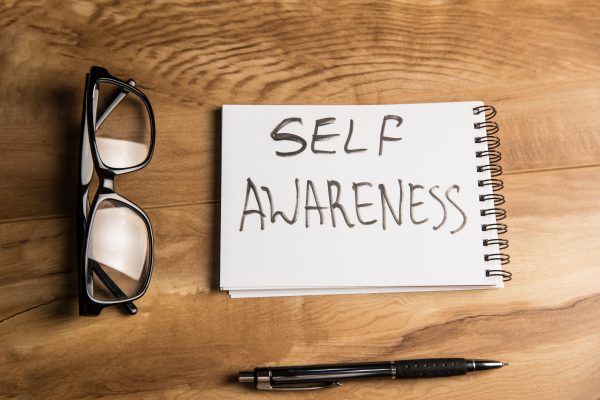Over the last few blogs, we have talked about resilience, what it is, and why we all need to improve our personal levels of resilience.
Developing resilience to cope with a specific situation is super important, and the key goal is to embed resilience into our lives for the long game.
Building and maintaining resilience over the long term requires a deliberate and proactive approach. In this blog post, we will explore the key areas to consider to build and sustain resilience as an employee, manager, or leader, providing you with valuable insights and resources to continue your resilient approach to life and work.
Develop Self-Awareness Daily

Resilience begins with self-awareness, not that one-time lightbulb moment; instead, this is the awareness we check in with every day.
Understanding your strengths, gaps, values, and triggers can help you navigate difficult situations with greater ease.
Reflection is Revealing
Set aside regular time for self-reflection. This can be daily, weekly, or monthly, depending on your preference. Use this time to analyse your thoughts, feelings, and behaviours.
Consider journaling or keeping a reflective diary to record your observations and insights. Here is a great website with some excellent journal prompts you can use; use the ones you are drawn to.
Feedback is a Gift
Seek feedback from others; feedback truly is a gift if we become brave enough to ask for it. Ask trusted friends, colleagues, or mentors for their honest opinions and observations about your strengths and areas that you just might be blind to.
Be open to receiving feedback and use it as an opportunity to gain new awareness from a different perspective.
Assessments and Development Tools
Utilise various self-assessment tools to gain insights into your personality traits, profiles, values, and strengths. These assessments can provide a structured framework for understanding yourself. Examples include MBTI, Insights, and Strength Finder. If you want to find out more, drop me a line.
However, it’s important to remember that these tools are just starting points and should be used in conjunction with self-reflection and feedback.
Diversify Your Experience

Step out of your comfort zone and expose yourself to new environments, perspectives, and challenges. Engage in activities that push you to grow, learn, and interact with different people. This exposure helps you gain a broader perspective of yourself and expands your self-awareness.
Foster a Growth Mindset
We mentioned this in our last post, and it is that important I want to share it again. Embracing a growth mindset is fundamental to long-term resilience. Believe that your abilities and intelligence can be developed through effort and experience. Cultivate a thirst for learning and continuously seek opportunities for personal and professional growth.
Cultivate a Supportive Network and Practice Self-Care Continually

Building a strong support network is crucial for resilience. Surround yourself with people who uplift and encourage you, both personally and professionally, and where possible, avoid those that don’t! Seek mentors, coaches, or colleagues who can provide guidance and support during challenging times.
Resilience requires maintaining your physical, mental, and emotional well-being. Prioritise self-care by incorporating healthy habits into your daily routine. This can include regular exercise, sufficient sleep, mindfulness practices, and finding activities that bring you joy and relaxation.
Apps like Headspace or Calm can assist in mindfulness and meditation practices.
Develop Adaptive Skills and Learn To Embrace Change

As the business landscape continues to evolve and change, being adaptable is essential for long-term resilience. Build your skillset in areas that are relevant and adaptable to different contexts. The more transferable skills you have, the better. Invest in your professional development, and attend workshops and conferences where and when you can.
Resilient individuals, managers, and leaders are comfortable with change and ambiguity. Develop your ability to embrace uncertainty by seeking out new challenges and opportunities, taking calculated risks, and reframing setbacks as learning experiences.
Foster Positive Workplace Culture
As a manager or leader, creating a positive workplace culture is crucial for building and sustaining resilience in your team. Foster an environment that encourages open communication, psychological safety, and collaboration. Recognise and celebrate achievements, provide constructive feedback, and encourage work-life balance.
Resilience is built through learning and adapting to setbacks. Embrace failures as opportunities for growth, seek feedback from others, and reflect on your experiences.
Remember that self-awareness is a lifelong journey, and it requires continuous effort and practice. By incorporating these strategies into your daily routine, you can consistently develop and enhance your self-awareness, leading to greater personal and professional growth.
Until next time,
Julia
About Zestfor
Zestfor delivers training coaching and development programs and resources scientifically tailored to develop leaders and their teams in technical markets – including Pharmaceutical, IT, and Life Sciences.
Our blend of in-classroom, online, and virtual live-stream delivery methods will engage and assure even the most introverted team members from the first meeting.
You can find out more about our new Raising Resilience programmes here. Or call us on 0845 548 0833.









